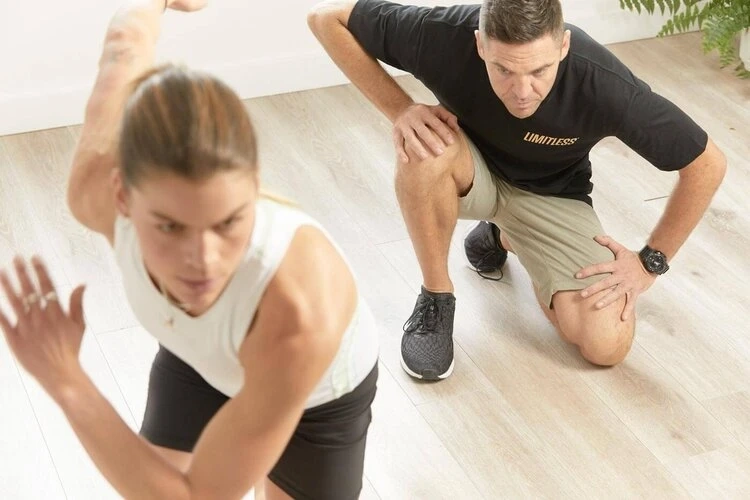Living in a fast-paced world, anxiety often sneaks its way into our lives. You might think of therapy sessions or yoga classes as common remedies. But, have you ever thought, "How can physiotherapy help with anxiety?" Let's navigate this surprisingly beneficial and untapped area together.
How can Physiotherapy Help with Anxiety?
Firstly, physiotherapy isn't just about mending physical injuries. Its power reaches beyond, helping improve mental well-being, notably anxiety. Now, how exactly does it work? Well, let's explore that.
The Biological Link between Physiotherapy and Anxiety
Our body and mind are interconnected. When your body feels better, so does your mind. It's not rocket science, right? Well, physiotherapy leverages this link. It helps you engage in structured physical activities, thereby reducing anxiety levels.
Harnessing the Power of Endorphins
During physiotherapy, your body releases endorphins, nature's painkillers, often referred to as 'feel-good' chemicals. These hormones help alleviate stress and induce feelings of pleasure. Feeling better yet?
Physiotherapy for Better Sleep
Anxiety often disrupts our sleep patterns. The relaxation techniques employed in physiotherapy promote better sleep, which in turn helps manage anxiety.
Delving Deeper: Physiotherapy Techniques for Anxiety
There's a world of techniques in physiotherapy that can effectively help with anxiety. You might wonder, "Are these for me?" Well, let's take a closer look.
Breathing Exercises
Ever heard of the phrase, "Take a deep breath"? Breathing exercises in physiotherapy guide you to do just that, helping you combat anxiety.
Progressive Muscle Relaxation
This technique involves tensing and then relaxing each muscle group in your body, promoting overall relaxation and reducing anxiety.
Aerobic Exercises
Get your heart pumping! Regular aerobic exercises, under the guidance of a physiotherapist, can significantly reduce anxiety levels.
Real-Life Examples: How can Physiotherapy Help with Anxiety?
Enough with the technical talk! Let's explore some real-life examples where physiotherapy has worked wonders for anxiety.
Story of a Middle-aged Woman
Caught in the whirlwind of life, a middle-aged woman was grappling with severe anxiety. Physiotherapy, with its structured exercises and relaxation techniques, helped her regain control over her life.
Experience of a University Student
Bogged down by academic pressure, a university student developed anxiety. His journey with physiotherapy helped him cope better, improving not just his grades, but his overall mental well-being.
Getting Started with Physiotherapy for Anxiety
Thinking about trying physiotherapy for your anxiety? Here are some steps you can take.
Finding the Right Physiotherapist
The first step is finding a physiotherapist who understands your needs. It's not about who's the best out there, but who's the best for you.
Setting a Schedule
Consistency is key in physiotherapy. Set a schedule that suits you and stick to it for the best results.
Being Patient and Persistent
Physiotherapy is not a quick fix. It requires patience and persistence. But remember, the results are well worth the effort!
Frequently Asked Questions
1. Can physiotherapy cure anxiety?
While physiotherapy can significantly help manage anxiety, it should not be considered a cure. It's best used in conjunction with other treatments.
2. How often should I do physiotherapy exercises for anxiety?
The frequency can vary depending on individual needs. Your physiotherapist will guide you in this regard.
3. Are there any side effects of physiotherapy for anxiety?
Physiotherapy is generally safe. However, overdoing exercises can cause physical discomfort. Always follow your physiotherapist's instructions.
4. Can children undergo physiotherapy for anxiety?
Yes, physiotherapy can be beneficial for children suffering from anxiety. Always consult with a professional for age-appropriate exercises.
5. Does insurance cover physiotherapy for anxiety?
Some insurance providers may cover it, but it varies. It's best to check with your insurance provider.
6. Can I do physiotherapy exercises for anxiety at home?
Yes, many exercises can be done at home. However, initial guidance from a physiotherapist is crucial.
Conclusion
Anxiety can feel overwhelming, but remember, you're not alone. If you're asking, "How can physiotherapy help with anxiety?" We hope this article has shed some light. Physiotherapy, with its unique blend of physical exercises and relaxation techniques, could be the missing piece in your anxiety management puzzle.


